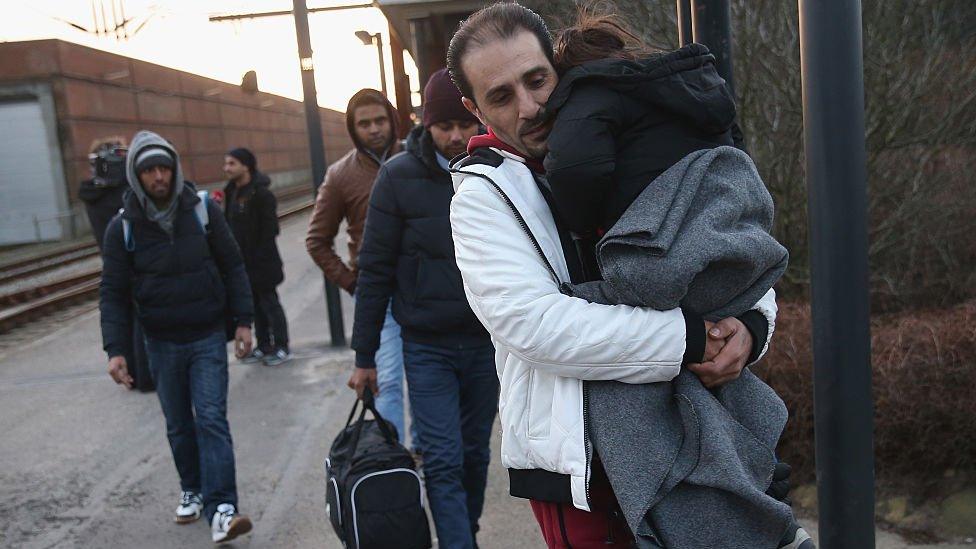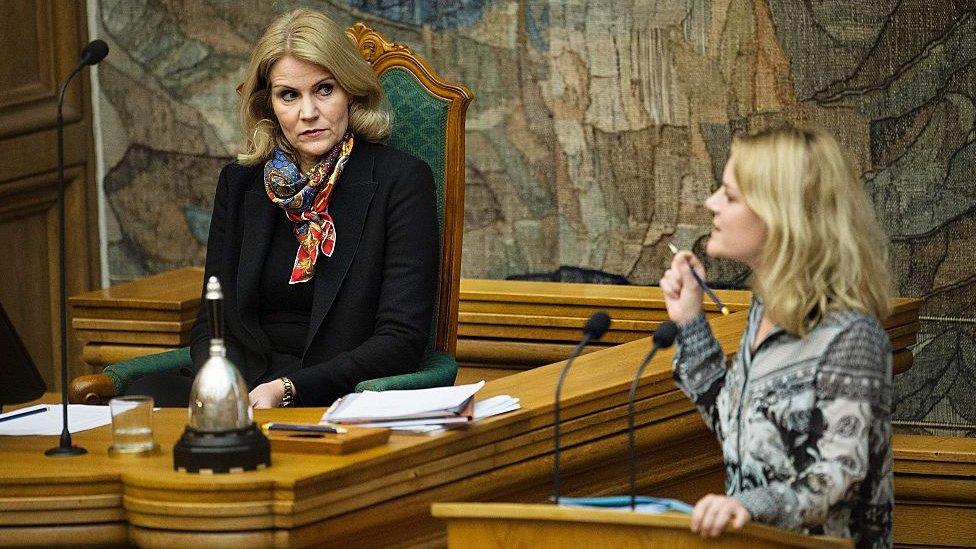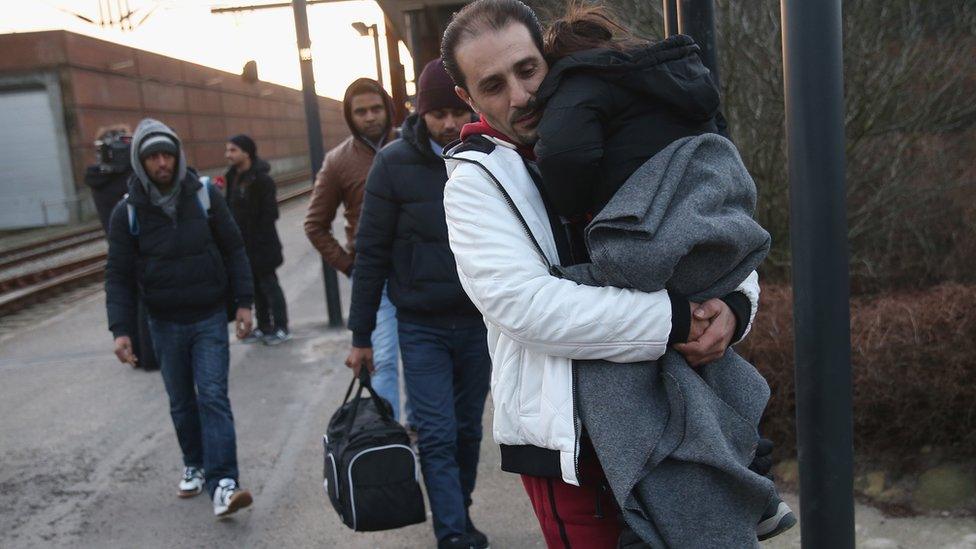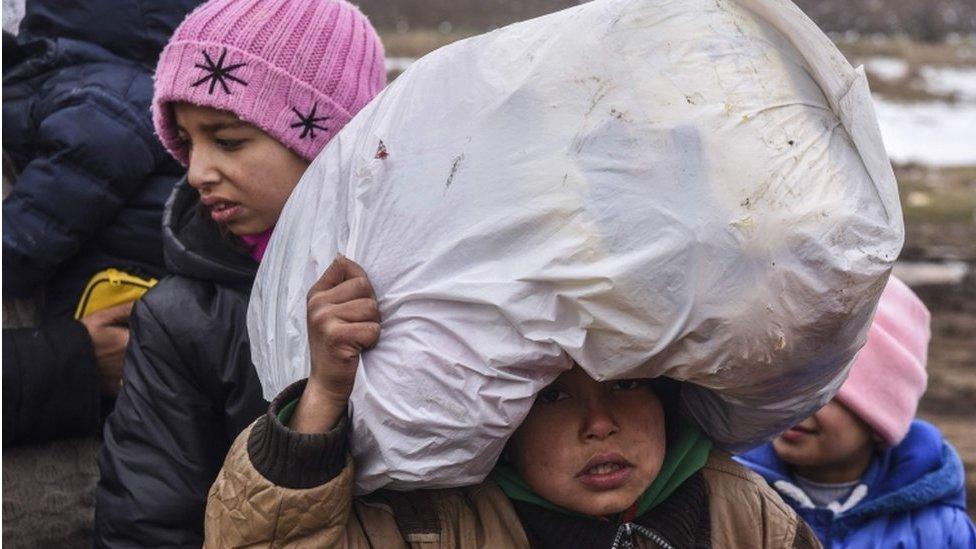Denmark's 'migrant confiscation law' yields little cash
- Published

More than 5,000 asylum-seekers have arrived in Denmark this year - but police only made four cash confiscations
A controversial Danish law allowing asylum-seekers' assets to be confiscated has reaped only 117,600 kroner (£14,000; $17,500) for the state, police figures show.
Cash has been seized four times since the law came into effect in February.
The law provoked angry exchanges when it was being debated, with the government arguing it was only fair to make refugees contribute.
Critics say the new figures prove their claim that the law was just "symbolic".
Why are countries seizing refugees' valuables?
Police confirmed the cash confiscation figure to the BBC, saying they were authorised to search new arrivals for assets and only took those over and above a 10,000-kroner limit.
The sum was seized from individuals or groups of asylum-seekers on four occasions between June and October. The single biggest amount was 79,600 kroner taken from five Iranians on 30 June.
The figures were applauded by the anti-immigration Danish People's Party, with deputy Martin Henriksen telling AFP news agency the law had been "a success in the sense that it sent a signal that we have tightened [the rules] in Denmark".

The new law inflamed political passions: Former PM Helle Thorning Schmidt (L) backed it against critics like the Red-Green Alliance's Johanne Schmidt Nielsen
A spokeswoman for the Ministry of Immigration, Integration and Housing defended the law, saying: "The basic principle behind the rules on seizure is that anyone who has sufficient means has to support himself or herself."
But Johanne Schmidt-Nielsen, from the Red-Green Alliance (Enhedslisten), which opposed the law, said her party still viewed it as "a symbolic move to scare people away.
"And the very low amount of money that the law has resulted in seems to confirm this," said a spokesperson.
Impact on families
Asylum applications have dropped dramatically in Denmark so far in 2016, compared to 2015. The government said 5,500 applications were received until 30 October, compared to 21,000 in 2015.
But the Danish Refugee Council told the BBC the figures reflected a decline across Europe. That was attributable, the council said, to the EU's March deal with Turkey to stem the flow of migrants, and the closure of the Balkan route - not to the Danish confiscation policy.
It criticised the confiscation law, but said the new legislation contained another, sometimes overlooked element of greater importance to most asylum-seekers: an extension of the period migrants have to wait before applying for relatives to join them, from one year to three.
This is "against the right to family life as stated in the European Convention on Human Rights and... inhumane, because the amendments to the rules for family reunification will have huge consequences for refugees coming to Denmark," the council said.
- Published26 January 2016

- Published26 January 2016
